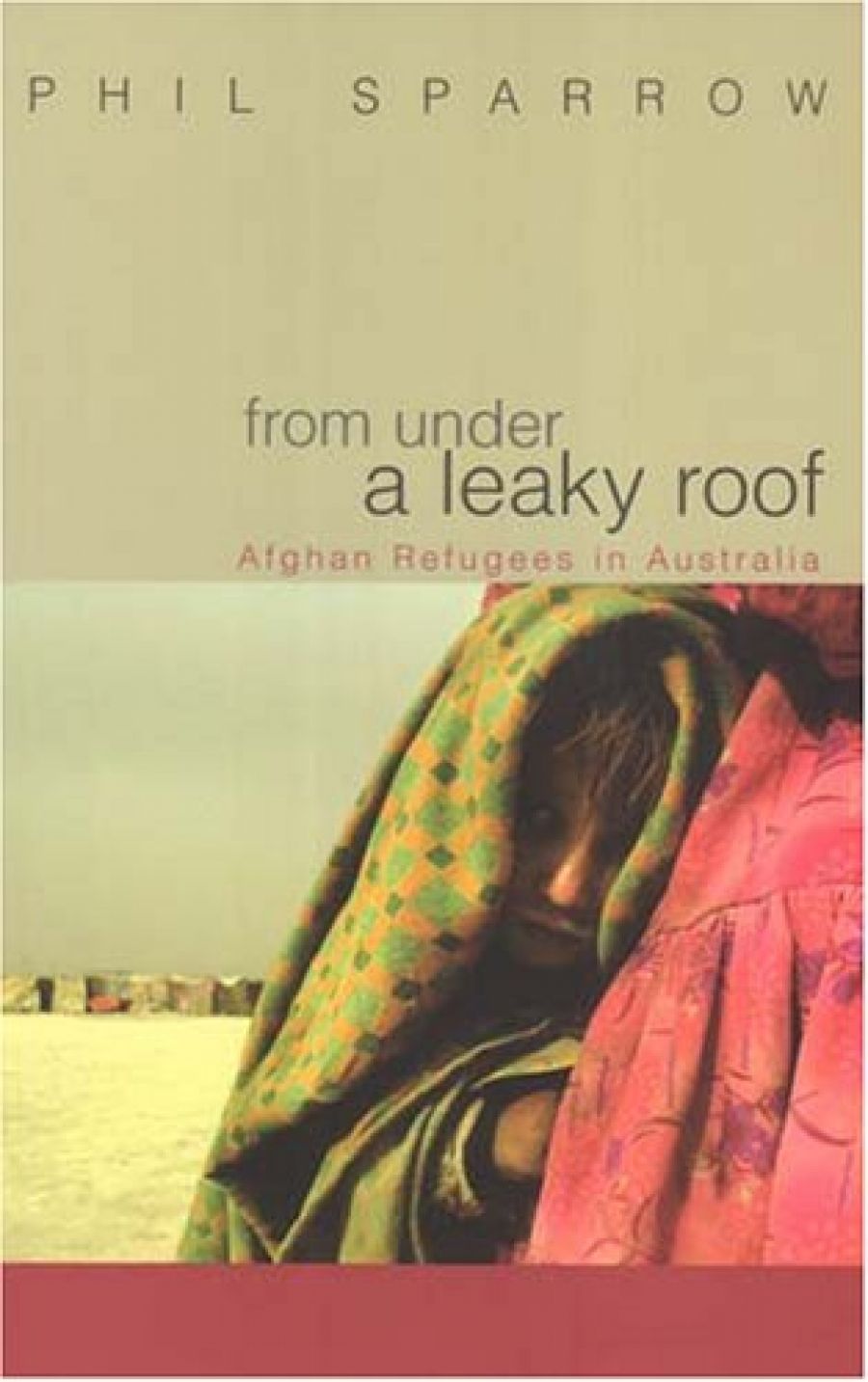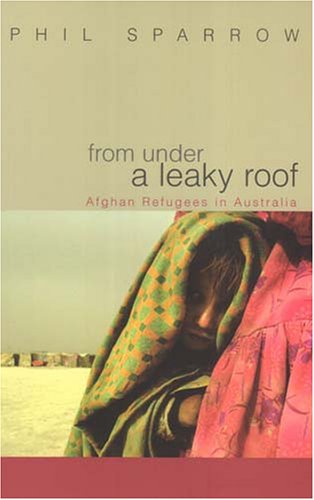
- Free Article: No
- Custom Article Title: Jo Case reviews 'From Under a Leaky Roof: Afghan refugees in Australia' by Phil Sparrow
- Review Article: Yes
- Article Title: Jo Case reviews 'From Under a Leaky Roof: Afghan refugees in Australia' by Phil Sparrow
- Online Only: No
- Custom Highlight Text:
Phil Sparrow lived and worked as a UN aid worker in pre-9/11 Afghanistan for nearly three years. Evacuated when the country was attacked by the US, he returned to Australia and worked as an interpreter for Afghan refugees in Australia. In this book, Sparrow writes about his experiences in Afghanistan and Australia, and his reading of the Australian government’s response to refugees, particularly those from Afghanistan.
- Book 1 Title: From Under a Leaky Roof
- Book 1 Subtitle: Afghan refugees in Australia
- Book 1 Biblio: FACP, $24.95 pb, 160 pp
- Book 1 Cover Small (400 x 600):

- Book 1 Cover (800 x 1200):

The unique aspect of this book on a much-published subject is Sparrow’s focus on our misguided tendency to treat all Afghans as though they are one homogeneous culture. Sparrow displays a solid grasp of the complexities of Afghan social politics and the many cultural factors that can have major repercussions when overlooked. He highlights tensions within the Australian-Afghan community and emphasises the ongoing prejudice of the pre-9/11 refugees (mostly urban Tajiks and Pashtuns) towards the later wave (predominately less-educated rural Hazaras). Sparrow also identifies a disturbing lack of understanding among well-meaning Australian activists and academics about these divisions and how they inform public debate, providing specific instances of entrenched prejudices towards Hazaras privately held by well-known Afghan-Australian activists.
In many ways, Sparrow goes over ground already covered more extensively in the wave of recent publications on Australia’s treatment of refugees. Readers familiar with these works will probably experience a degree of déjà vu for the first three chapters. However, as the book continues, Sparrow’s focus and unique expertise become more evident and his voice emerges to make its own distinct contribution to the genre. It will be interesting to see how authorities receive Sparrow’s interpretation of the Australian-Afghan community.


Comments powered by CComment